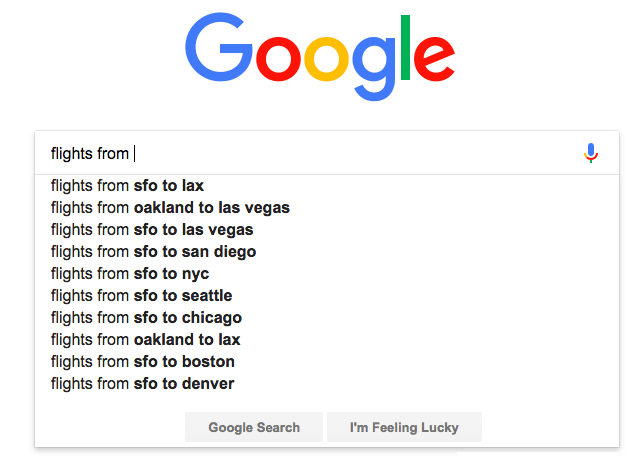On May 25, the world of digital marketing changed forever.
Through advances in AI and the proliferation of data trackers everywhere, the world of digital advertising was fast approaching a new paradigm where an ad would only be shown to someone in the market for that message, and that user could, in theory, be tracked on every device they used to engage with a website.
Advances in technology even enabled advertisers to target users by the shows they watch all without users really being aware of what is being tracked.
But, with one wide-reaching and ambiguous law meant to protect the privacy of only European citizens, progress on that front has been halted in its tracks.
Technically the law only is only relevant in the EU but given the size of that economy, it has a far-reaching impact well beyond European shores.
GDPR & Its Impact on Digital Marketing
The General Data Protection Regulation, or GDPR as it is known, requires that users explicitly opt into tracking and gives them a choice about how they can be tracked after they opt in.
While it is too soon to tell if users will mindlessly click “accept” as marketers hope they will, the damage has already been done.
Without all the advanced attribution tracking, marketers have become accustomed to, some digital marketing could be heading toward parity with a billboard on the side of the highway with regard to effectiveness measurement. (For instance, ad view-through tracking is near impossible to attribute without cookie approval and PPC ads on search are more opaque if a user has not opted into cookies.)
However, not all marketers have been impacted by this legislation.
In fact, SEO is the one area that actually benefited from this legislation.
For years, SEO has been the marketing function hiding behind the curtain while other channels commanded the big budgets.
My prediction is that with GDPR subjecting onerous restrictions on paid marketing channels we will see a shift toward more SEO efforts.
Here are six areas where SEO specifically benefited from GDPR.
1. Privacy Policy & Link Architecture
One of the requirements of GDPR is that all companies have a clearly written privacy policy and, more importantly, to make users aware of it.
The way most sites have taken this requirement of informing users is to put a link to the privacy policy on every page of their site.
From a cross-linking perspective, an SEO team may have run into roadblocks in the past getting specific links added to pages to improve crawlability and discoverability. This may have been especially challenging on pages designed for demand generation that happened to have lots of inbound links, but the outbound links were strictly controlled.
Now, with GDPR, the addition of the privacy policy link to the page allows the SEO team a new way to flow crawlers from these high-value pages.
A privacy policy is typically controlled by a legal team rather than marketers and they typically lean toward more information rather than less.
The legal team will have a lot less objection to adding a link to an HTML sitemap or other high-value pages somewhere relevant in the privacy policy.
2. Budgets
For larger companies with strict budget planning processes, a good portion of the 2018 marketing budget was locked before the year started.
Now that GDPR is upending attribution it is causing a rethink of paid budgets, funds that are released from paid campaigns could end up being more available for SEO needs.
If those funds do shift towards SEO, some of those wishlist backburner projects might suddenly become a reality.
3. Reduced Cannibalization
Inherent in the relationship between paid search and organic search there has always been some aspect of cannibalization, especially when things like brand bidding and retargeting are taken into account.
With the ability to retarget essentially blocked by law in the EU and attribution issues potentially stifling some brand search, this is the organic channel’s time to shine as click volume will shift to organic listings as paid placements within search are reduced.
4. Personalization Through SEO
While Google purports that search results are not really that personalized any longer, this is based on a faulty premise.
Search suggestions are actually incredibly personalized. Google is pushing people into queries that are based on prior searches, location, and time of day.
The actual results searchers might see might not be that personalized, but the queries are so specific the results themselves don’t need to be personalized.
In that respect, any sort of search can only be personalized based on history if people accept cookies which they need to do under GDPR.
Without cookies, search is once again depersonalized benefiting sites with the ability to rank on broader less specific queries.
 Search suggest shows my local airport
Search suggest shows my local airport5. Search Doesn’t Require Giving up Data
On that note, while other information discovery platforms like social media networks require logging in and sharing personal data, search can be done completely anonymously.
To the privacy-concerned or even paranoid individuals, Google or even DuckDuckGo searches can be conducted in an incognito browser without ever logging into the search engine.
Aside from the personalization aspects of search, search doesn’t even need cookies or any sort of user data in order to provide great results.
6. User Intent
Finally, without the ability to incredibly personalize advertising based on first- and third-party cookies, marketers will come to the realization that the best way to target user intent is with content that actually matches the user intent which user will discover themselves via search.
For example, instead of guessing whether a user is in the market for an SUV with paid marketing, websites can create content for users in the market for an SUV which will be found when they conduct a search.
Conclusion
GDPR will likely be one of the most transformative events in the history of digital marketing.
Most discussions about GDPR focus on the negative aspects to no longer being able to track users where ever they are.
However, it isn’t all bad.
Users will still want to find the products and services they need online, they just want a little bit more choice about how they are marketed.
SEO is the passive channel that, done effectively, can just draw users in with their own queries when they are ready to buy.
More SEO Resources:
Image Credit
Screenshot taken by author, August 2018
Subscribe to SEJ
Get our daily newsletter from SEJ’s Founder Loren Baker about the latest news in the industry!
